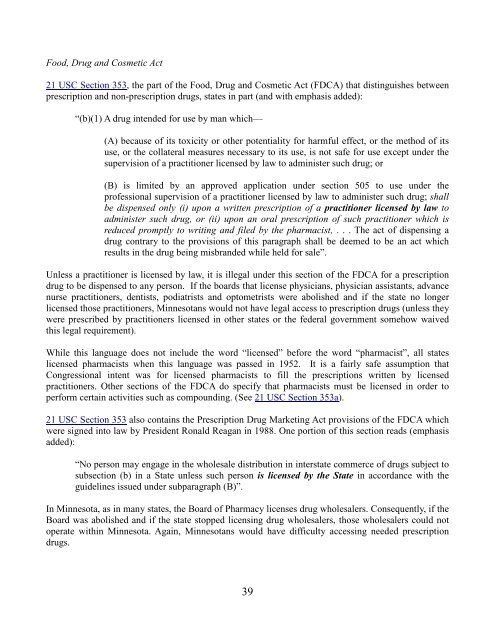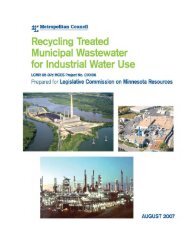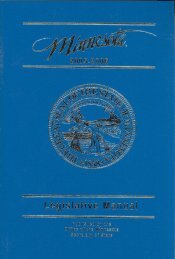Minnesota Board of Pharmacy - Minnesota State Legislature
Minnesota Board of Pharmacy - Minnesota State Legislature
Minnesota Board of Pharmacy - Minnesota State Legislature
Create successful ePaper yourself
Turn your PDF publications into a flip-book with our unique Google optimized e-Paper software.
Food, Drug and Cosmetic Act<br />
21 USC Section 353, the part <strong>of</strong> the Food, Drug and Cosmetic Act (FDCA) that distinguishes between<br />
prescription and non-prescription drugs, states in part (and with emphasis added):<br />
“(b)(1) A drug intended for use by man which—<br />
(A) because <strong>of</strong> its toxicity or other potentiality for harmful effect, or the method <strong>of</strong> its<br />
use, or the collateral measures necessary to its use, is not safe for use except under the<br />
supervision <strong>of</strong> a practitioner licensed by law to administer such drug; or<br />
(B) is limited by an approved application under section 505 to use under the<br />
pr<strong>of</strong>essional supervision <strong>of</strong> a practitioner licensed by law to administer such drug; shall<br />
be dispensed only (i) upon a written prescription <strong>of</strong> a practitioner licensed by law to<br />
administer such drug, or (ii) upon an oral prescription <strong>of</strong> such practitioner which is<br />
reduced promptly to writing and filed by the pharmacist, . . . The act <strong>of</strong> dispensing a<br />
drug contrary to the provisions <strong>of</strong> this paragraph shall be deemed to be an act which<br />
results in the drug being misbranded while held for sale”.<br />
Unless a practitioner is licensed by law, it is illegal under this section <strong>of</strong> the FDCA for a prescription<br />
drug to be dispensed to any person. If the boards that license physicians, physician assistants, advance<br />
nurse practitioners, dentists, podiatrists and optometrists were abolished and if the state no longer<br />
licensed those practitioners, <strong>Minnesota</strong>ns would not have legal access to prescription drugs (unless they<br />
were prescribed by practitioners licensed in other states or the federal government somehow waived<br />
this legal requirement).<br />
While this language does not include the word “licensed” before the word “pharmacist”, all states<br />
licensed pharmacists when this language was passed in 1952. It is a fairly safe assumption that<br />
Congressional intent was for licensed pharmacists to fill the prescriptions written by licensed<br />
practitioners. Other sections <strong>of</strong> the FDCA do specify that pharmacists must be licensed in order to<br />
perform certain activities such as compounding. (See 21 USC Section 353a).<br />
21 USC Section 353 also contains the Prescription Drug Marketing Act provisions <strong>of</strong> the FDCA which<br />
were signed into law by President Ronald Reagan in 1988. One portion <strong>of</strong> this section reads (emphasis<br />
added):<br />
“No person may engage in the wholesale distribution in interstate commerce <strong>of</strong> drugs subject to<br />
subsection (b) in a <strong>State</strong> unless such person is licensed by the <strong>State</strong> in accordance with the<br />
guidelines issued under subparagraph (B)”.<br />
In <strong>Minnesota</strong>, as in many states, the <strong>Board</strong> <strong>of</strong> <strong>Pharmacy</strong> licenses drug wholesalers. Consequently, if the<br />
<strong>Board</strong> was abolished and if the state stopped licensing drug wholesalers, those wholesalers could not<br />
operate within <strong>Minnesota</strong>. Again, <strong>Minnesota</strong>ns would have difficulty accessing needed prescription<br />
drugs.<br />
39

















